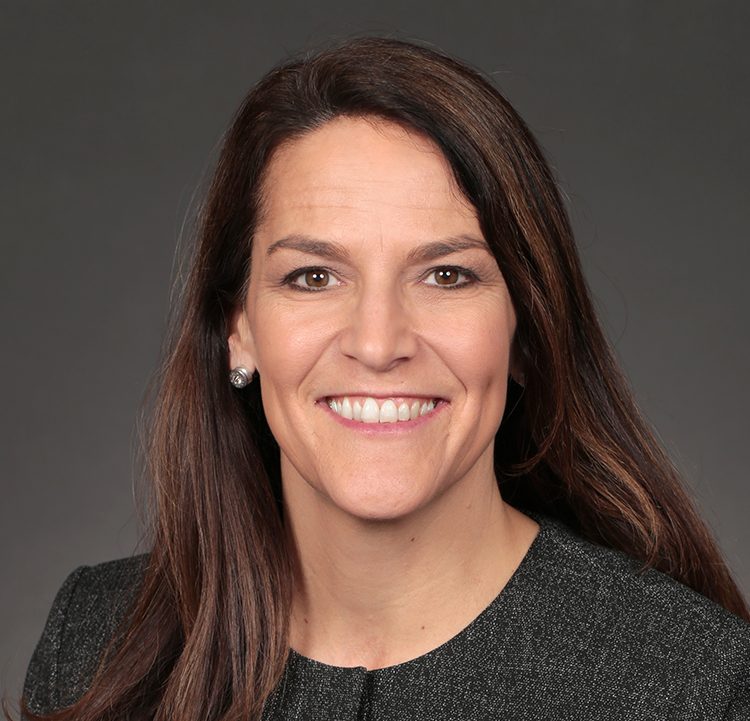On July 11, Governor Reynolds convened the Iowa General Assembly for a special session with the sole purpose of enacting legislation that addresses abortion and protects unborn lives. The bill passed this week was very similar to the bill passed by the legislature in 2018.
In 2018, the legislature passed what became known as the “Heartbeat Bill.” The bill would prohibit an abortion if a fetal heartbeat can be detected during an abdominal ultrasound performed by a physician. Under this legislation, the physician would then be required to inform the pregnant mother of the heartbeat and explain an abortion cannot be performed. The bill allows exceptions if a medical emergency exists, in cases of rape or incest, and to protect the life of the mother.
The bill was passed by both the House and the Senate and signed into law. It was blocked by the Polk County District Court because at that time, four members of the Iowa Supreme Court had created a right to an abortion in the Iowa Constitution.
Since then, a lot has changed, and major strides have been taken in the pro-life movement. Last summer, the United States Supreme Court sent the power to decide abortion policy back to the states with the Dobbs Decision, and the Iowa Supreme Court overturned its erroneous previous decision creating a right to an abortion in the Iowa Constitution. With these challenges overcome, Governor Kim Reynolds asked the Iowa Supreme Court to lift the injunction and reconsider whether the 2018 Heartbeat Bill was constitutional and could be enacted. However, with one justice abstaining, the Iowa Supreme Court was tied on whether they would lift the injunction on a lower court’s decision.
Because this issue is so important and this legislation can save so many lives, Governor Reynolds called lawmakers back to find the next pathway forward for the pro-life movement and those trying to protect life.
I spoke on the Senate floor during the debate, sharing my personal story of an unplanned pregnancy that I experienced in my 20s:
“I was single, traveling with my job and working long hours. Getting pregnant and having a baby was the last thing I was expecting or planning when I tested positive to 3 home pregnancy tests. I went to the doctor who administered another pregnancy test and when it was positive, he did an ultrasound. When he found the heartbeat, he asked me what I wanted to do.
My immediate response was, “What do you mean? What do I want to do? There’s a heartbeat.”
At that moment it all became very real, and I finally understood the impact of my choices and my actions that led to my pregnancy.
Yes, it was my choice to engage in an activity that I knew could lead to pregnancy if precautions like birth control weren’t in place. I also knew that sometimes pregnancy happens even with those precautions. But I made my choice and like with most choices there are consequences. In this case, my choice created another human life that I was now responsible for.
“What do you want to do?” he asked. If I did nothing, this independent life with its own heartbeat would continue to develop and be born and experience life, liberty, and the pursuit of happiness, just like me and everyone has had the opportunity to do.
My other option was to stop the heartbeat: to kill the child that I had created with his father. I didn’t even want to think about how they carried out the procedure to stop the heartbeat that would end the life that I created.
This was no longer about me. I didn’t have the right to end another human life because it wasn’t convenient or a good time for me. I took responsibility for my actions. His father took responsibility for his actions. It wasn’t easy. It wasn’t comfortable, but we rose to the challenge and adjusted our lives to welcome our baby boy.
It changed my life dramatically. It was not what I planned for my life. It was not how I wanted to start my family. It changed the course of my career. It was the formation of a human life that I was now responsible for. I was not going to stop a heartbeat because it didn’t align with my life plan or was inconvenient for me. That heartbeat is now my 25-year son who has lived a life full of sports, music, friends and family and he has been one of my greatest joys.
I’m amazed at advances in technology that allow parents to hear their babies’ heartbeats, find out the gender of their babies in the first trimester, to see their babies in 3D Ultrasounds. That technology is helping women understand that what they are carrying isn’t just a “blob of cells,” they are seeing their babies and hearing the heartbeats of the human life they created.
One of my priorities while serving in the Iowa Senate has been to improve Maternal Health, support to pregnant mothers and fathers, access to birth control and expand adoption services. Last year, we passed the MOMS bill (More Options for Maternal Health) to invest in mothers, fathers and their babies and provide them with the support and resources they need to have positive healthy outcomes. We have also invested in Student Loan Repayment programs and Fellowships to attract OB/GYNs to rural areas.
Across Iowa, there are county public health departments and there is a funded network of service providers, pregnancy centers, maternity residences, social service agencies and adoption agencies. I met with the Scott County Public Health department last year and they showed me the results of the WIC program, the connections they make for women experiencing domestic abuse, substance abuse, or are in need of baby items, transportation, employment opportunities, childcare, dental care, etc. They also told me about the screenings to help identify early signs of postpartum depression so new moms can get the help they need to take care of themselves and their babies.
I will continue to work in a bipartisan manner to further expand this work so all women and men in Iowa can get access to quality, affordable birth control, know that support and resources are available to them when they become pregnant and expand adoption services.”
I ended my comments on the Senate floor with this:
“In 2014, I was with my grandmother when she passed away. She was in the hospital, and we were talking about BGM football when she suddenly gasped and slumped over in her chair. The nurses and doctors came running. She had a “do not resuscitate” order so when her heart stopped, they let her go and she was dead. When she no longer had a heartbeat, her life was over.
So, when a life is determined to be over when a heartbeat ends, then why would a life not begin when a heartbeat is detected? Unless action is taken to end that heartbeat, it is a human life that deserves to live and can reach his or her full potential.”
The Heartbeat Bill is about protecting every person with a heartbeat because we all know what a heartbeat is: an unmistakable sign of life. The heartbeat proves the baby is a human being and has a right to life, liberty and the pursuit of happiness in this country. This bill is a logical, rational approach to the issue, and I believe it is the right policy for Iowa.
















